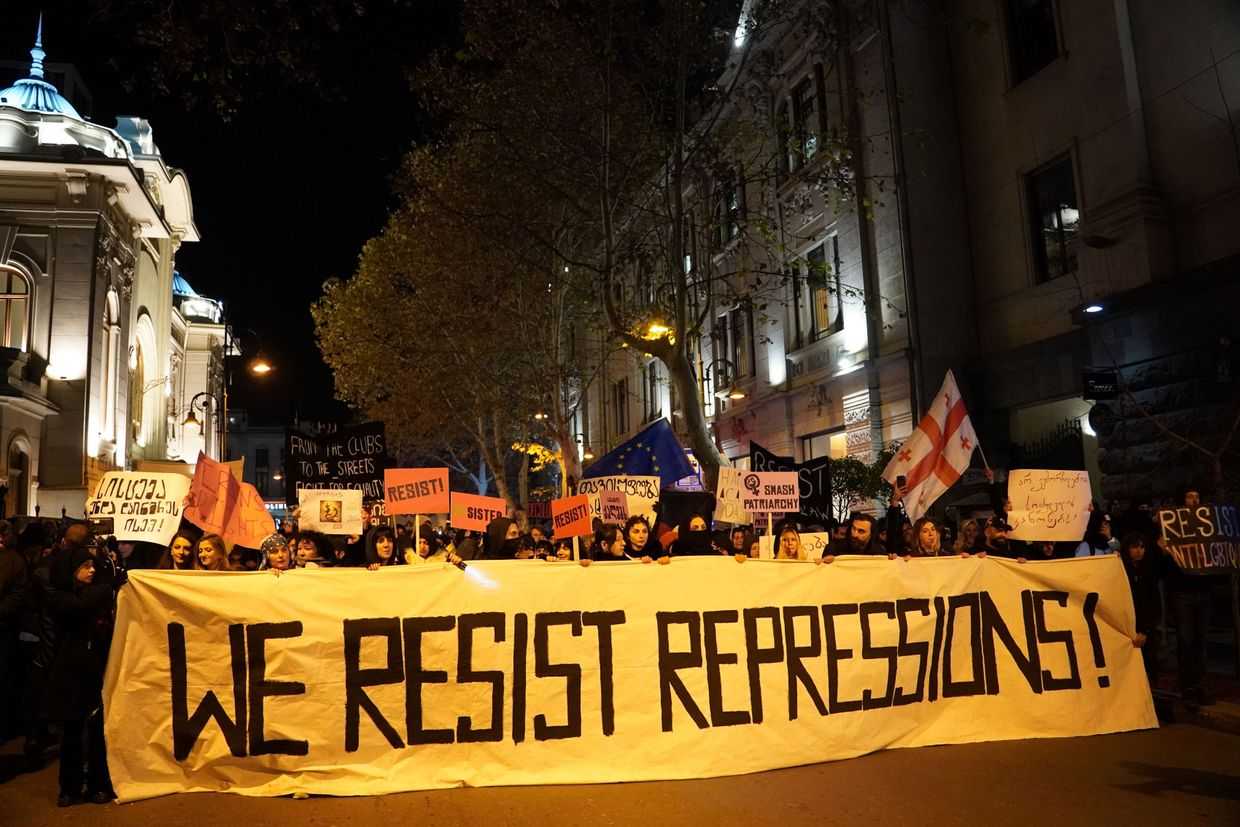

 Georgia’s judiciary has come under fire from NGOs and officials after a 27-year-old man charged with stabbing three people, including a police officer, was released on bail. The incident happened on 13 January in Tbilisi outside the Bassiani nightclub.
Georgia’s judiciary has come under fire from NGOs and officials after a 27-year-old man charged with stabbing three people, including a police officer, was released on bail. The incident happened on 13 January in Tbilisi outside the Bassiani nightclub.
Tamaz Kvlividze stabbed two security guards and a police officer with a knife, the Interior Ministry said in a statement, reportedly after being denied entry to Bassiani.
Kvlividze was initially released on ₾30,000 ($12,000) bail, sparking widespread criticism and accusations of preferential treatment, because of the accused’s social status. The decision to grant him bail was later overturned after prosecutor’s took the case to the Court of Appeals.
‘A privileged family’
The incident was quickly brought into the spotlight after Bassiani’s founder, Naja Orashvili, posted on Facebook saying Kvlividze came from a ‘privileged family, who has proved that their superiority ranks higher than the Georgian constitution’.
Kvlividze’s lawyer, Zaza Meskhi told Liberali Magazine that there was ‘nothing serious in the incident’.
‘There was an argument when he was denied entrance to the club, followed by a misunderstanding. Nothing serious happened, several club employees received injuries when they tried to take the knife from him’, Meskhi said.
Kvlividze’s father, business person Paata Kvlividze, was quoted by PalitraNews as saying that his status had nothing to do with the decision to grant his son bail, as he has no one to ask to interfere and is currently unemployed.
‘Probably the judge saw that [my son] is a decent person, that he’s not a murderer. It was a crime of passion. You know how security guards behave, they don’t behave decently. It was probably self-defence’, Paata Kvlividze told said.
‘A shadow over the judiciary’s reputation’
The court’s decision to grant him bail was criticised by politicians both from the opposition and ruling parties. Deputy Parliamentary Chair Tamar Chugoshvili said that ‘this is one of the cases casting a shadow over the judiciary’s reputation’.
‘When somebody, whomever it is, inflicting such severe injuries to others gets out on bail, it raises questions and casts a shadow over the judiciary’s reputation’, Chugoshvili said.
She said cases like this should be handled with more responsibility.
Sopo Verdzeuli from local rights group the Human Rights Education and Monitoring Centre, told Liberali it must be determined whether ‘double standards’ were applied in this case.
‘When others with less severe charges are remanded in custody and the judge decided to accept bail in this particular case, especially when there are questions regarding the social status of the accused, it should be determined whether there is a double standard’, said Verdzeuli.
Interior Minister Giorgi Gakharia commented that ‘when it comes to the safety and dignity of a policeman, the ministry as well as any citizen must be uncompromising’.
The decision to grant Kvlividze bail was overturned by the Court of Appeals on 17 January, and he will now remain in pre-trial detention. Kvlividze’s lawyer had expressed hope that statements from officials would not influence the appeal court’s decision, deeming these statements pressure on the court.









